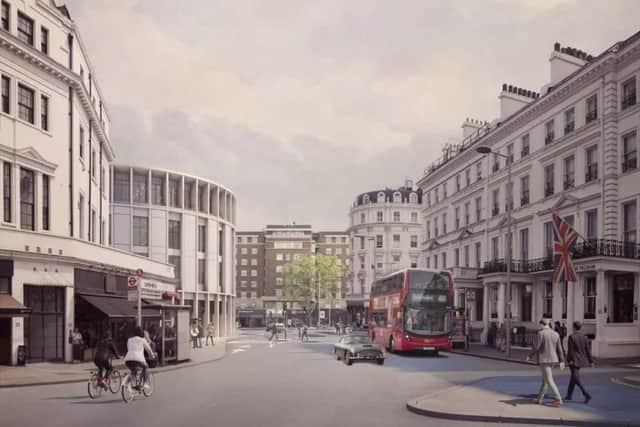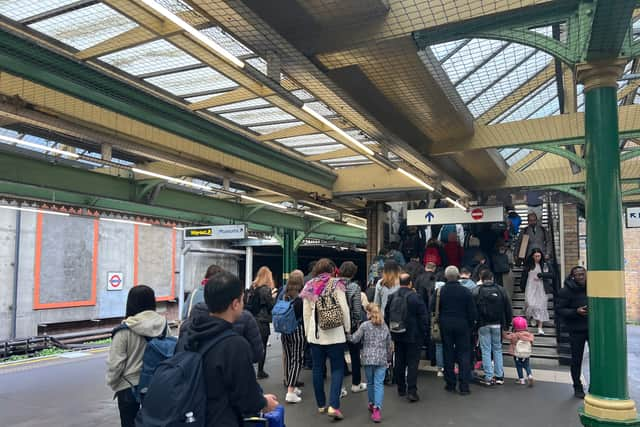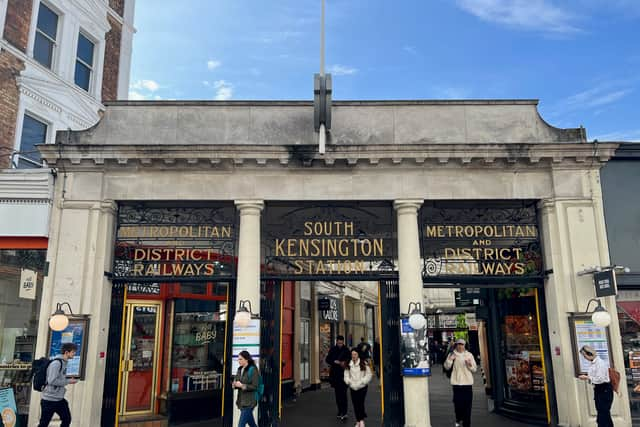TfL: South Kensington and Tube station development in the balance as planning inquiry closes
and live on Freeview channel 276
An inquiry which will decide the future of South Kensington has closed, leaving the decision in the hands of the planning inspector.
In November 2021 , Kensington and Chelsea Council rejected an application to redevelop the area with 50 new homes and new shops, as well to improve access to the Underground station. An appeal was lodged by Transport for London (TfL) subsidiaries London Underground Ltd and TTL South Kensington Properties Ltd, along with developer Native Land (Kensington) Ltd.
Advertisement
Hide AdAdvertisement
Hide AdThe Planning Inspectorate has confirmed that the inquiry has ended, with a site visit and the final sitting taking place on Friday (May 5). All documentation has been submitted, including a section 106 agreement. A decision is expected to take at least seven weeks.
Kensington and Chelsea’s planning committee said the proposed development would “fail to preserve the special architectural and historic interest of the listed building” due to its scale and the design. The council found that this was not outweighed by the public benefits.
The developer and TfL argue that the project would bring benefits to South Kensington, including affordable housing, commercial opportunities and the station improvement.
The Tube station and surrounding area act as a gateway to the Natural History Museum, Science Museum, V&A and Royal Albert Hall.
South Kensington station and TfL
Advertisement
Hide AdAdvertisement
Hide AdThe development would include step-free access to the ticket hall, the Circle and District line and the subway tunnel.
In a separate project, TfL obtained listed building consent in 2018 to expand the capacity of the station, enlarge the ticket hall, rebuild the disused platform on the north side of the station to service the District and Circle lines, and make other changes. These projects have not been carried out. TfL said that while they remain an aspiration, there are no current timescales and that delivery would require wider development, such as the appealed application.


Affordable housing
The redevelopment would include 50 new homes around the station, including 35% affordable homes, to be delivered in the first phase of the scheme.


Pelham Street
Pelham Street would once again become two sided, with new housing and commercial buildings on the north side of the road.
Advertisement
Hide AdAdvertisement
Hide AdNew homes would be built on a vacant Thurloe Square site that backs onto the station.
South Kensington station arcade
The developer says the project will “restore and enhance the station’s Grade-II listed Arcade in its entirety to create an arrival experience befitting London’s world-renowned museum and cultural quarter”.


The Bullnose
A proposed building at the front of the station, is referred to as ‘The Bullnose’ because of its shape. The proposed building is four storeys, smaller than the surrounding buildings. On the upper floors high quality workspace would be provided. The ground floor would provide shops.
Comment Guidelines
National World encourages reader discussion on our stories. User feedback, insights and back-and-forth exchanges add a rich layer of context to reporting. Please review our Community Guidelines before commenting.